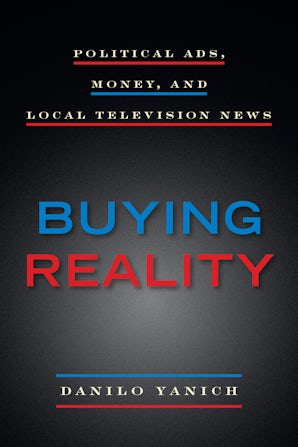Pre-Election Day Sale!
By Kate O'Brien-Nicholson
2nd November 2020
Election Day is just around the corner, so make sure to get your hands on the Press’ recent release Buying Reality by Danilo Yanich before you vote!
From a certain perspective, the biggest political story of 2016 was how the candidate who bought three-quarters of the political ads lost to the one whose every provocative Tweet set the agenda for the day’s news coverage. With the arrival of bot farms, microtargeted Facebook ads, and Cambridge Analytica, isn’t the age of political ads on local TV coming to a close? You might think. But you’d be wrong to the tune of $4.4 billion just in 2016. In U.S. elections, there’s a lot more at stake than the presidency. TV spending has gone up dramatically since 2006, for both presidential and down-ballot races for congressional seats, governorships, and state legislatures—and the 2020 campaign shows no signs of bucking this trend. When candidates don’t enjoy the name recognition and celebrity of the presidential contenders, it’s very much business as usual. They rely on the local TV newscasts, watched by 30 million people every day—not Tweets—to convey their messages to an audience more fragmented than ever.
Read this recent article by Professor Danilo Yanich.
Yanich has written the most comprehensive study yet of political advertising and political issue coverage in local television markets. By carefully comparing national versus local coverage in ten cities, he has found that while television stations profit greatly from political advertising, they make nearly no contribution to covering the critical down-ballot issues that affect their audiences as citizens. This is an important contribution to the scholarship on local television and its failure to adequately serve the public, for scholars and policymakers alike. – Lewis A. Friedland, Vilas Distinguished Achievement Professor in the School of Journalism and Mass Communication, UW–Madison
Well researched and crisply argued, this is the rare data-rich book on the media that also provides helpful context about the history of political advertising, campaign finance law, and the tension woven into broadcast news between treating a license as a “sacred public trust” and generating a profit. Essential. – Choice
Use code Election20 at checkout to get 20% off!

Also, check out our Pinterest page for more information about the 2020 Presidential Election!

